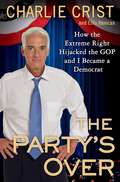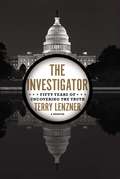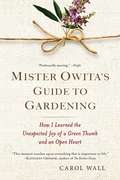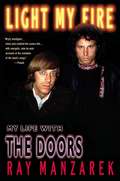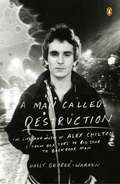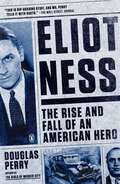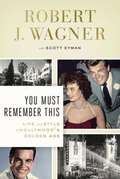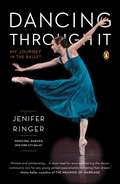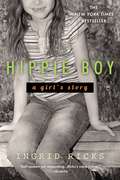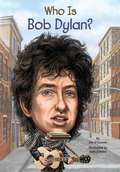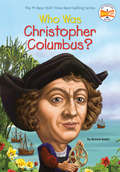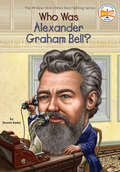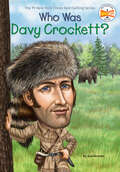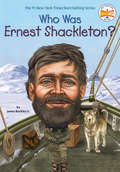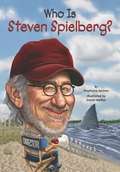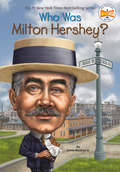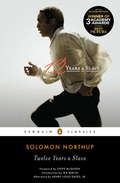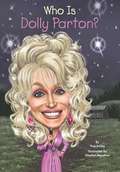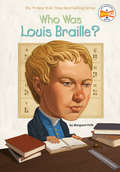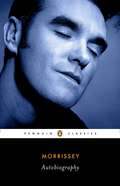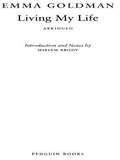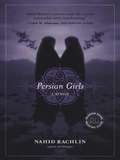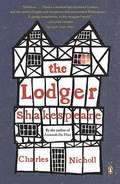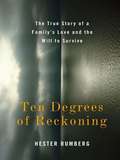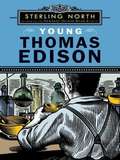- Table View
- List View
The Party's Over
by Ellis Henican Charlie CristCharlie Crist, the former Republican governor of Florida, spent years in the party's inner circle. In this no-holds-barred memoir, he shows why he switched sides and became a Democrat. After serving as a Republican governor--one who was on the short list for the vice presidency in 2008--Charlie Crist made headlines when he decided to run for the U.S. Senate as an Independent. He was on the front page again when he endorsed President Obama in 2012 and spoke at the Democratic National Convention--and yet again when he officially joined the Democratic Party later that year. In The Party's Over, he'll make even more news when he reveals: The inside story of his 2010 Senate primary campaign against Marco Rubio, where he learned exactly how vicious the Republican leadership can be. His journey from inner circle to persona non grata, thanks to his literal embrace of President Obama. His very frank opinions on Marco Rubio, Jeb Bush, Mitt Romney, Sarah Palin, and other top-tier Republicans. Why he believes that Democrats have the right vision for Florida and the nation. * What he's learned as a member of both parties and why he remains convinced that the two-party system can still work--with the right leadership. Rather than just rehashing his career, in this book Crist offers a focused indictment of the failings of the Republican Party, naming names and identifying where things went wrong. The Party's Over is as far from "politics as usual" as you can get.
The Investigator
by Terry LenznerThe Los Angeles Times once called investigative lawyer Terry Lenzner "one of the most powerful and dreaded private investigators in the world. ” In his fifty-year career, Lenzner has worked with politicians, celebrities, governments, and corporations worldwide; with a steadfast commitment to the truth, he has uncovered facts that have shaped policy and influenced major legal battles. In this captivating memoir, Lenzner speaks about his varied career and high-profile cases for the first time. At the Justice Department in 1964, he investigated the murder of three civil rights workers-an infamous event that inspired the film Mississippi Burning. He led the national Legal Services Program for the poor, prosecuted organized crime in New York, defended peace activist Philip Berrigan, and represented CIA operative Sid Gottlieb. As a counsel to the Senate Watergate Committee, Lenzner investigated Nixon’s dirty tricks and followed the money trail that led to the Watergate burglary and cover-up. He was the first person to deliver a congressional subpoena to a sitting U. S. president. He uncovered cost overruns of the Alaska oil pipeline, helped identify the Unabomber, investigated the circumstances of Princess Diana’s death, and cleared Hugo Chavez of false corruption charges. Lenzner also worked with President Clinton’s defense team during the impeachment hearings. The Investigator is a riveting personal account: Lenzner astounds with anecdotes of scandal and intrigue, offers lessons in investigative methods, and provides an eye-opening look behind some of the most talked-about media stories and world events of our time. .
Mister Owita's Guide to Gardening
by Carol WallA moving true story of the unlikely friendship between two people who had nothing and ultimately everything in common. Carol Wall was at a crossroads. Her children had flown the nest, her beloved parents were ageing and she had overcome a serious illness. A neglected garden should have been the least of her worries. Until one day she sees a man working in her neighbour's garden and realises he is responsible for its spectacular transformation. His name is Giles Owita. He comes from Kenya and he's very good at gardening. 'It was kismet. a And while I knew from the moment I met him that he was something special - truly, I didn't know the half of it. ' Before long Mister Owita is transforming not only Carol's garden, but her life. Although they seem to have nothing in common, a bond grows between them. When both are forced to share long-buried secrets, their friendship is transformed forever. This is the story of a woman who at mid-life finds there is so much more to learn and a man whose grace in facing life's challenges is a lesson for us all. 'Deeply personal, poetic and brimming with humanity, this is a book of lasting grace. ' Steve Lopez, New York Times bestselling author of The Soloist '
Light My Fire
by Ray Manzarek"The best book yet about The Doors." --Booklist Now available as an ebook for the first time...the inside story of the Doors, by cofounder and keyboard player Ray Manzarek. Includes 16 pages of photos. "A refreshingly candid read...a Doors bio worth opening." --Entertainment Weekly No other band has ever sounded quite like the Doors, and no other frontman has ever transfixed an audience quite the way Jim Morrison did. Ray Manzarek, the band's co-founder and keyboard player, was there from the very start--and until the sad dissolution--of the Doors. In this heartfelt and colorfully detailed memoir, complete with 16 pages of photographs, he brings us an insider's view of the brief, brilliant history...from the beginning to the end. "An engaging read." --Washington Post Book World
A Man Called Destruction
by Holly George-WarrenThe first biography of the influential musician and forebear of the indie-rock scene Alex Chilton's story is rags to riches in reverse, beginning with teenage rock stardom and heading downward. Following stints leading 60s sensation the Box Tops ("The Letter") and pioneering 70s popsters Big Star ("the ultimate American pop band"--Time), Chilton became a dishwasher. Yet he rose again in the 80s as a solo artist, producer, and trendsetter, coinventing the indie-rock genre. By the 90s, acolytes from R.E.M. to Jeff Buckley embodied Chilton's legacy, ushering him back to the spotlight before his untimely death in 2010. In the career-spanning and revelatory A Man Called Destruction, longtime Chilton acquaintance Holly George-Warren has interviewed more than 100 bandmates, friends, and family members to flesh out a man who presided over--and influenced--four decades of American musical history, rendered here with new perspective through the adventures of a true iconoclast.
Eliot Ness
by Douglas PerryThe true story of Eliot Ness, the legendary lawman who led the Untouchables, took on Al Capone, and saved a city's soul Eliot Ness is famous for leading the Untouchables against the notorious mobster Al Capone. But it turns out that the legendary Prohibition Bureau squad's daring raids were only the beginning. Ness's true legacy reaches far beyond Big Al and Chicago. Eliot Ness follows the lawman through his days in Chicago and into his forgotten second act. As the public safety director of Cleveland, he achieved his greatest success: purging the city of corruption so deep that the mob and the police were often one and the same. And it was here, too, that he faced one of his greatest challenges: a brutal, serial killer known as the Torso Murderer, who terrorized the city for years. Eliot Ness presents the first complete picture of the real Eliot Ness. Both fearless and shockingly shy, he inspired courage and loyalty in men twice his age, forged law-enforcement innovations that are still with us today, and earned acclaim and scandal from both his professional and personal lives. Through it all, he believed unwaveringly in the integrity of law and the basic goodness of his fellow Americans.
You Must Remember This
by Robert J. Wagner Scott EymanThe legendary actor and bestselling author of Pieces of My Heart offers a nostalgic look at Hollywood's golden age For millions of movie lovers, no era in the history of Hollywood is more beloved than the period from the 1930s through the 1950s, the golden age of the studio system. Not only did it produce many of the greatest films of the American cinema, but it was then that Hollywood itself became firmly established as the nation's ultimate symbol of glamour and style, its stars almost godlike figures whose dazzling lives were chronicled in countless features in magzazines like Photoplay and Modern Screen. While these features were a standard part of the work of studio publicity departments, they told eager readers little about what life was really like for these celebrities once they stepped out of the public eye. No one is better qualified to tell that story than Robert Wagner, whose own career has spanned more than five decades and whose New York Times bestseller, Pieces of My Heart, was one of the most successful Hollywood memoirs in recent years. You Must Remember This is Wagner's intimate ode to a bygone time, one of magnificent homes, luxurious hotels, opulent night-clubs and restaurants, and unforgettable parties that were all part of the Hollywood social scene at its peak. From a dinner party at Clifton Webb's at which Judy Garland sang Gershwin at the piano to golf games with Fred Astaire, from Jimmy Cagney's humble farmhouse in Coldwater Canyon to the magnificent beach mansion built by William Randolph Hearst for Marion Davies, from famous restaurants like the Brown Derby and Romanoff's to nightspots like the Trocadero and the Mocambo, Wagner shares his affectionate memories and anec¬dotes about the places and personalities that have all become part of Hollywood legend. As poignant as it is revealing, You Must Remember This is Wagner's account of Hollywood as he saw it, far from the lights and cameras and gossip columns--and a tender farewell to the people of a mythical place long since transformed, and to a golden age long since passed.
Dancing Through It
by Jenifer RingerA behind-the-curtains look at the rarefied world of classical ballet from a principal dancer at the New York City Ballet In her charming and self-effacing voice, Jenifer Ringer covers the highs and lows of what it's like to make it to the top in the exclusive, competitive ballet world. From the heart-pounding moments waiting in the wings before a performance to appearing on Oprah to discuss weight and body image among dancers, Dancing Through It is moving and revelatory. Raised in South Carolina, Ringer led a typical kid's life until she sat in on a friend's ballet class, an experience that would change her life forever. By the age of twelve she was enrolled at the elite Washington School of Ballet and soon moved to the School of American Ballet. At sixteen she was a professional dancer at the New York City Ballet in Manhattan, home of the legendary George Balanchine and Jerome Robbins. Ringer takes us inside the dancer's world, detailing a typical day, performance preparation, and the extraordinary pressures that these athletes face. Ringer shares exhilarating stories of starring in Balanchine productions, working with the famous Peter Martins, and of meeting her husband and falling in love at the New York City Ballet. Ringer also talks candidly of Alistair Macauley's stinging critique of her weight in his 2010 New York Times review of The Nutcracker that ignited a public dialogue about ballet and weight. She unflinchingly describes her personal struggles with eating disorders and body image, and shares how her faith helped her to heal and triumph over these challenges.
Hippie Boy
by Ingrid RicksDiscover the unforgettable New York Times bestselling memoir about growing up in a dysfunctional Mormon family--and finding escape, adventure, and hard-earned wisdom on the road... What would you do if your stepfather pinned you down and tried to cast Satan out of you? For thirteen-year-old Ingrid, the answer is simple: RUN. For years Ingrid Ricks yearned to escape the poverty and the suffocating brand of Mormon religion that oppressed her at home. Her chance came when she was thirteen and took a trip with her divorced dad, traveling throughout the Midwest, selling tools and hanging around with the men on his shady revolving sales crew. It felt like freedom from her controlling mother and cruel, authoritarian stepfather--but it came with its own disappointments and dysfunctions, and she would soon learn a lesson that would change her life: she can't look to others to save her; she has to save herself.
Who Is Bob Dylan? (Who was?)
by John O'Brien Nancy Harrison Jim O'ConnorA singer-songwriter, musician, and artist, Bob Dylan is an American icon. In the past five decades, Dylan's work has influenced everyone from John Lennon, Bruce Springsteen, and David Bowie to rapper Eminem. Young music lovers will be fascinated by this great artist's life!
Who Was Christopher Columbus? (Who was?)
by Nancy Harrison Bonnie BaderLearn all about Christopher Columbus' early life at sea, which led him to seek fortune by sailing west in hopes of creating new trade routes with the Indies. Kids will read about why he called himself the "Great Admirald of the Seas" and learn of all his struggles to find finacial support for his voyage.
Who Was Alexander Graham Bell?
by David Groff Bonnie BaderDid you know that Bell's amazing invention--the telephone--stemmed from his work on teaching the deaf? Both his mother and wife were deaf. Or, did you know that in later years he refused to have a telephone in his study? Bell's story will fascinate young readers interested in the early history of modern technology!
Who Was Davy Crockett? (Who was?)
by Gail Herman Nancy Harrison Robert SquierDavy Crockett, the King of the Wild Frontier, is a man of legend. He is said to have killed his first bear when he was three years old. His smile alone killed another, and he skinned a bear by forcing him to run between two trees. Fact or fiction? Find out the real story of this folk hero, who did love to hunt bears, served as a congressman for Tennessee, and fought and died at the Alamo.
Who Was Ernest Shackleton? (Who was?)
by James Buckley Max HergenrotherAs a boy he preferred reading sea stories to doing homework and, at age 16, became an apprentice seaman. Subsequently, Ernest Shackleton's incredible journeys to the South Pole in the early 1900s made him one of the most famous explorers of modern times. His courage in the face of dangerous conditions and unforeseeable tragedies reveal the great leader that he was. His historic 1914 journey aboard the Endurance has all the drama of an action movie.
Who Is Steven Spielberg?
by Stephanie Spinner Daniel MatherWhile other kids played sports, Steven Spielberg was writing scripts and figuring out camera angles. He went from entertaining his Boy Scout troop with home movies to amazing audiences around the world with epic blockbusters. He has directed four of the most successful films of all time and has won two Academy Awards for Best Director. From Jaws to Lincoln, young readers and aspiring filmmakers will be fascinated by the life of this famous director.
Who Was Milton Hershey? (Who was?)
by James Buckley Ted HammondDiscover the man behind the chocolate bar! Milton Hershey's life was filled with invention and innovation. As a young man, he was not afraid to dream big and work hard. Eventually, he learned the secret to mass-producing milk chocolate and the recipe that gave it a longer, more stable shelf life. He founded a school for those who didn't have access to a good education and an entire town for his employees. Both his chocolate empire and his great personal legacy live on today.
12 Years a Slave
by Ira Berlin Henry Louis Gates Solomon Northup Steve McqueenThe official movie tie-in edition to the winner of the 2014 Academy Award for Best Picture, starring Chiwetel Ejiofor, Michael Fassbender, and Lupita Nyong'o, and directed by Steve McQueen New York Times bestseller "I could not believe that I had never heard of this book. It felt as important as Anne Frank's Diary, only published nearly a hundred years before. . . . The book blew [my] mind: the epic range, the details, the adventure, the horror, and the humanity. . . . I hope my film can play a part in drawing attention to this important book of courage. Solomon's bravery and life deserve nothing less." --Steve McQueen, director of 12 Years a Slave, from the Foreword Perhaps the best written of all the slave narratives, Twelve Years a Slave is a harrowing memoir about one of the darkest periods in American history. It recounts how Solomon Northup, born a free man in New York, was lured to Washington, D.C., in 1841 with the promise of fast money, then drugged and beaten and sold into slavery. He spent the next twelve years of his life in captivity on a Louisiana cotton plantation. After his rescue, Northup published this exceptionally vivid and detailed account of slave life. It became an immediate bestseller and today is recognized for its unusual insight and eloquence as one of the very few portraits of American slavery produced by someone as educated as Solomon Northup, or by someone with the dual perspective of having been both a free man and a slave.
Who Is Dolly Parton? (Who was?)
by True Kelley Nancy Harrison Stephen MarchesiBorn in a little cabin in Tennessee, Dolly Parton always dreamed big, and she was right to! She wrote her first song at age five and became a country music star by the time she was in her early twenties. Of course, her success didn't stop there. Dolly Parton is also an actress, author, businesswoman, and philanthropist whose "Imagination Library" reading initiative reaches children throughout the US, Canada, and the UK. There is simply no one like Dolly Parton!
Who Was Louis Braille?
by Margaret Frith Scott Anderson Robert SquierLouis Braille certainly wasn't your average teenager. Blind from the age of four, he was only fifteen when in 1824 he invented a reading system that converted printed words into columns of raised dots. Through touch, Braille opened the world of books to the sightless, and almost two hundred years later, no one has ever improved upon his simple, brilliant idea.
Autobiography
by MorrisseySteven Patrick Morrissey was born in Manchester on May 22nd 1959. Singer-songwriter and co-founder of the Smiths (1982-1987), Morrissey has been a solo artist for twenty-six years, during which time he has had three number 1 albums in England in three different decades. Achieving eleven Top 10 albums (plus nine with the Smiths), his songs have been recorded by David Bowie, Nancy Sinatra, Marianne Faithfull, Chrissie Hynde, Thelma Houston, My Chemical Romance and Christy Moore, amongst others. An animal protectionist, in 2006 Morrissey was voted the second greatest living British icon by viewers of the BBC, losing out to Sir David Attenborough. In 2007 Morrissey was voted the greatest northern male, past or present, in a nationwide newspaper poll. In 2012, Morrissey was awarded the Keys to the City of Tel-Aviv. It has been said 'Most pop stars have to be dead before they reach the iconic status that Morrissey has reached in his lifetime. 'Autobiography covers Morrissey's life from his birth until the present day. 'Five stars. With typical pretension, Morrissey's first book has been published as a Penguin Classic. It justifies such presentation with a beautifully measured prose style that combines a lilting, poetic turn of phrase and acute quality of observation, revelling in a kind of morbid glee at life's injustice with arch, understated humour . . . It is recognisably the voice of the most distinctive British pop lyricist of his era' Neil McCormick, Daily Telegraph'A brilliant and timely book . . . What is so refreshing about Morrissey's Autobiography is its very messiness, its deliriously florid, overblown prose style, its unwillingness to kowtow to a culture of literary formula and commercial pigeon-holing . . . Autobiography is a true baggy monster, a book in which a distinctive prose style is allowed to develop . . . A rococo triumph . . . Overwhelmingly this is a book to be thankful for . . . In the ways that matter, Autobiography reads like a work of genuine literary class' Alex Niven, Independent'Sharply written, rich, clever, rancorous, puffed-up, tender, catty, windy, poetic, and frequently very, very funny. Welcome back, Morrissey'Michael Bonner, Uncut Magazine'Rancorous, rhapsodic, schizophrenic: Autobiography delivers a man in full'Andrew Male, Mojo'If one is willing to accept that a Morrissey book could be a classic, then the book justifies its status remarkably early on. . . . As a work of prose Autobiography is a triumph of the written word' Louder than war'Funnier than the Iliad . . . A triumph'Colin Paterson, Today Programme, BBC Radio 4'One of the autobiographies of this or any year . . . A wonderfully entertaining read. He's as witty, acerbic and opinionated as you'd expect, but there's a welcome self-awareness throughout that makes the dramatic flourishes and hyperbolic dismay all the more hilarious. He may have more flaws than Manchester's Arndale Centre but he's just brilliantly, uniquely Morrissey'Daily Mirror'Morrissey's Autobiography is brilliant and relentless. Genius, really' Douglas Coupland'Well, so far Morrissey's book is an absolute masterpiece; no doubt the whole stinking country will hate it'Frankie Boyle'This is the best book ever. Like ever'Wonderland 'Carried along on quite extraordinary prose'Time Out'The Best Music Biog Ever . . . In the world of rock autobiographies, Morrissey's is nigh-on perfect'NME'Practically every paragraph has a line or two that demands to be read aloud to the mirror, tattooed on foreheads, carved on tombstones' Rolling Stone'Morrissey is a pop star of unusual writing talent'New York Times
Living My Life
by Emma GoldmanAnarchist, journalist, drama critic, advocate of birth control and free love, Emma Goldman was the most famous—and notorious—woman in the early twentieth century. This abridged version of her two-volume autobiography takes her from her birthplace in czarist Russia to the socialist enclaves of Manhattan’s Lower East Side. Against a dramatic backdrop of political argument, show trials, imprisonment, and tempestuous romances, Goldman chronicles the epoch that she helped shape: the reform movements of the Progressive Era, the early years of and later disillusionment with Lenin’s Bolshevik experiment, and more. Sounding a call still heard today, Living My Life is a riveting account of political ferment and ideological turbulence. First time in Penguin Classics Condensed to half the length of Goldman's original work, this edition is accessible to those interested in the activist and her extraordinary era .
Persian Girls
by Nahid RachlinFor many years, heartache prevented Nahid Rachlin from turning her sharp novelist's eye inward: to tell the story of how her own life diverged from that of her closest confidante and beloved sister, Pari. Growing up in Iran, both refused to accept traditional Muslim mores, and dreamed of careers in literature and on the stage. Their lives changed abruptly when Pari was coerced by their father into marrying a wealthy and cruel suitor. Nahid narrowly avoided a similar fate, and instead negotiated with him to pursue her studies in America. When Nahid received the unsettling and mysterious news that Pari had died after falling down a light of stairs, she traveled back to Iran-now under the Islamic regime-to find out what happened to her truest friend, confront her past, and evaluate what the future holds for the heartbroken in a tale of crushing sorrow, sisterhood, and ultimately, hope. .
The Lodger Shakespeare
by Charles NichollIn 1612 Shakespeare gave evidence at the Court of Requests in Westminster - it is the only occasion his spoken words are recorded. The case seems routine - a dispute over an unpaid marriage-dowry - but it opens up an unexpected window into the dramatist's famously obscure life-story. Charles Nicholl applies a powerful biographical magnifying glass to this fascinating episode in Shakespeare's life. Marshalling evidence from a wide variety of sources, including previously unknown documentary material on the Mountjoys, he conjures up a detailed and compelling description of the circumstances in which Shakespeare lived and worked, and in which he wrote such plays as Othello, Measure for Measure and King Lear.
Ten Degrees of Reckoning
by Hester RumbergAn international bestseller. A remarkable true story of one woman's courage. In 1993, Judith and Michael Sleavin and their two children set out to sail around the world. Three years into their incredible journey, a nearby freighter altered its course by a mere ten degrees-and everything changed... After forty-four hours in the icy water clinging to an overturned dinghy, her back broken and paralyzed below the waist, Judith miraculously survived, winding up in a small community on the New Zealand coast. Gripping, unbelievable yet true, Judith's story of courage, survival, and retribution is alternately heartrending and uplifting. It's also a story of unbreakable bonds, of shattering loss, and of one woman reborn through the strength of friendship and the profound love of strangers who became family.
Young Thomas Edison
by Sterling NorthUnable to hear, Thomas Edison seemed unlikely to become one of America?s greatest inventors, but as a hardworking young man, he wasn?t about to let a minor obstacle stop him. He invented the phonograph, the incandescent lightbulb, and motion pictures, to name but three of his many important inventions. Eventually he was named ?the greatest living American. ? Follow Thomas Edison?s life from losing his sense of hearing to losing his hard-earned fortune, in this intriguing biography by Newbery Honor author Sterling North. .
